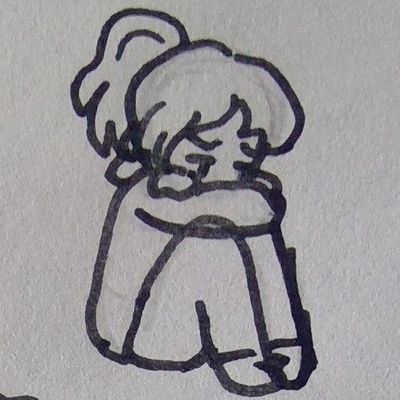“Mama, Mama, Mama,” Veri sang. “Are we almost there?” She was enjoying the bright, sweet spring day, and always loved an opportunity to go outside, but she was tired from walking for so long on the uneven, muddy path and from guiding her mother around the stones, puddles, and ruts. Besides, the sooner they arrived at Mrs. Alison’s house, the sooner she would be able to see Tristan.
“You would know better than I do, silly,” said Veri’s mother, holding tight to her daughter’s small leading hand and carefully following in whatever direction the girl pulled. “Can you see the house yet?”
Veri squinted through the trees anxiously. “No… I don’t think so… not yet.” She sighed impatiently. “Can’t you go any faster?”
“I’m sorry!” her mother laughed. “How about you slow down, little one? Look around you.”
Veri’s skipping feet slowed and she glanced at the sparse trees beside her. “But Mama, it’s just trees,” she complained. “Nothing special.”
“Really?” Her mother’s face had a look of amusement, though mingled with sadness as it usually was. “Imagine if there really was nothing there. No trees, no flowers, no mossy logs, no butterflies, no light coming down from the sky, no little vines growing up the trunks…” Her already distant eyes grew more distant as she remembered, and Veri looked up.
“It’s hard not to be able to see, isn’t it, Mama?” she asked, characteristically guessing how someone else felt.
Her mother nodded and held her young daughter’s hand tighter. “Yes, but I’ve gotten used to it. And since I can’t see, I can focus more on how things feel, or sound, or smell. I can still do plenty of things, and you are a very helpful little girl with what I can’t manage.”
Veri ignored the praise that was supposed to distract her. “I don’t think you really think that,” she said, shaking her head authoritatively. “Don’t you miss seeing? Then you know what it is you’re touching and you can see colors and shadows and te – textures. And you can see the forest and the moon and the house and the fences and me growing and the corn and the rug on the wall at home. And… you can see all the things you know are there and you like… to see that… are…” Her confidence suddenly petered out, and for a moment she uncomfortably fidgeted with her mother’s fingers. “Uh… or something. Right?”
Her mother was silent for a moment. Then she finally moved her hand, still holding her daughter’s, to pet Veri’s soft hair. “You’re right.”
Veri perked up again and restarted her skipping pace, pulling her mother along quickly after her. The little girl never thought about how it was she could sometimes tell how others felt or what they thought. It was an ability that had always come naturally to her. The only thing that had ever seemed strange about it was other people’s reactions to her startlingly accurate perceptions. Her mother had seemed to grow a little more used to it, but strangers or people who had never interacted much with Veri were so surprised that they sometimes physically jumped. I don’t see why they act like that, she had used to think. Can’t everyone guess people’s emotions? It’s just normal. But after some time she had decided that it must not be normal after all. Even some of the slightest comments she had made or the smallest things she had done over time were met with such confusion.
When she had pointed out that her mother’s friend wasn’t very happy with the showy yellow flowers in her bridal bouquet the friend had hushed her up quickly. Later, Veri had heard her fiercely asking her mother whether it really showed on her face that she hated them – she had been trying so hard to hide that.
When she had asked her father why the market man wouldn’t accept her father’s crops anymore, and if it had anything to do with her, both her parents had stared at each other with wide eyes, wordlessly asking “Did you say anything? Because I didn’t.”
When she had been banned from hide-and-seek by the other children at a picnic after she had “ruined” seven rounds in a row. Not only was she somehow able to easily find all the children when it was her turn to seek, but she had also always been the first to be found, so in turn she was always helping to find anyway. The first few times the other kids had thought this was great, and envied her skill, but after a couple more unchallenging, monotonous games they got tired of it.
When she had laughed at all of her uncle’s jokes even though she didn’t understand a single one. Her parents seemed a little relieved at learning this later, but they still asked her what it was she found so funny – his laugh wasn’t too contagious, but even if it were, that alone shouldn’t have constituted the level of hysteria she had gotten herself into. Veri hadn’t been able to answer.



















